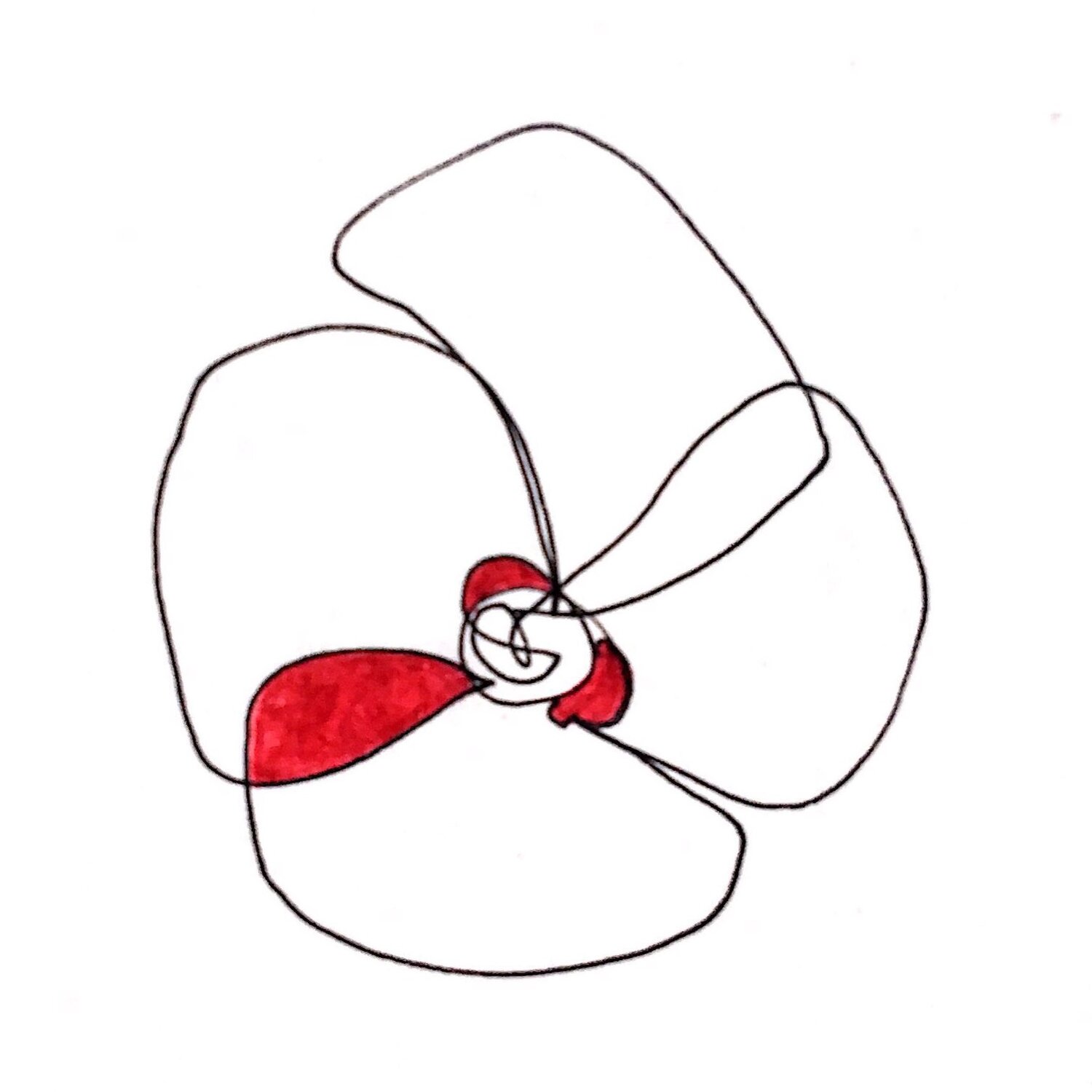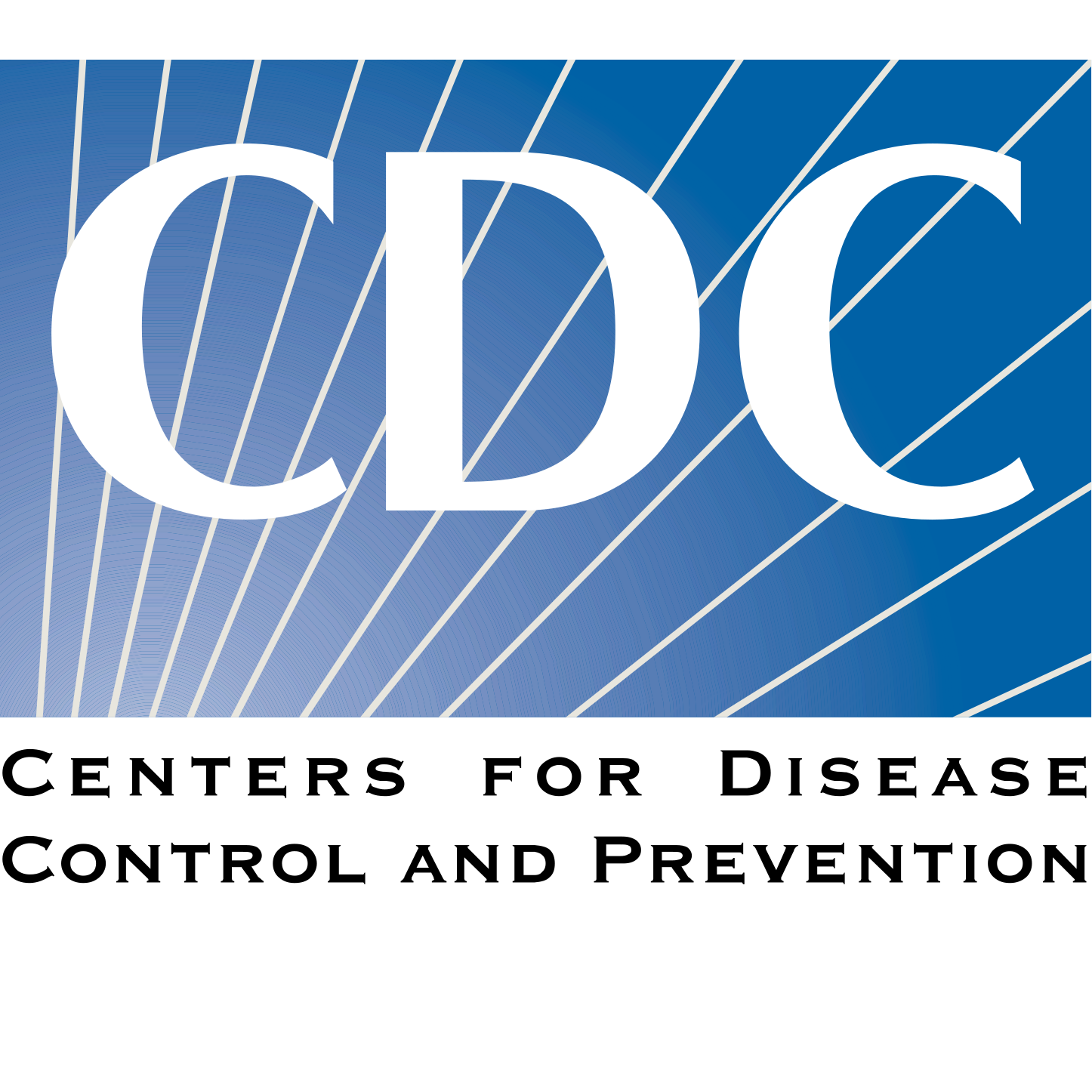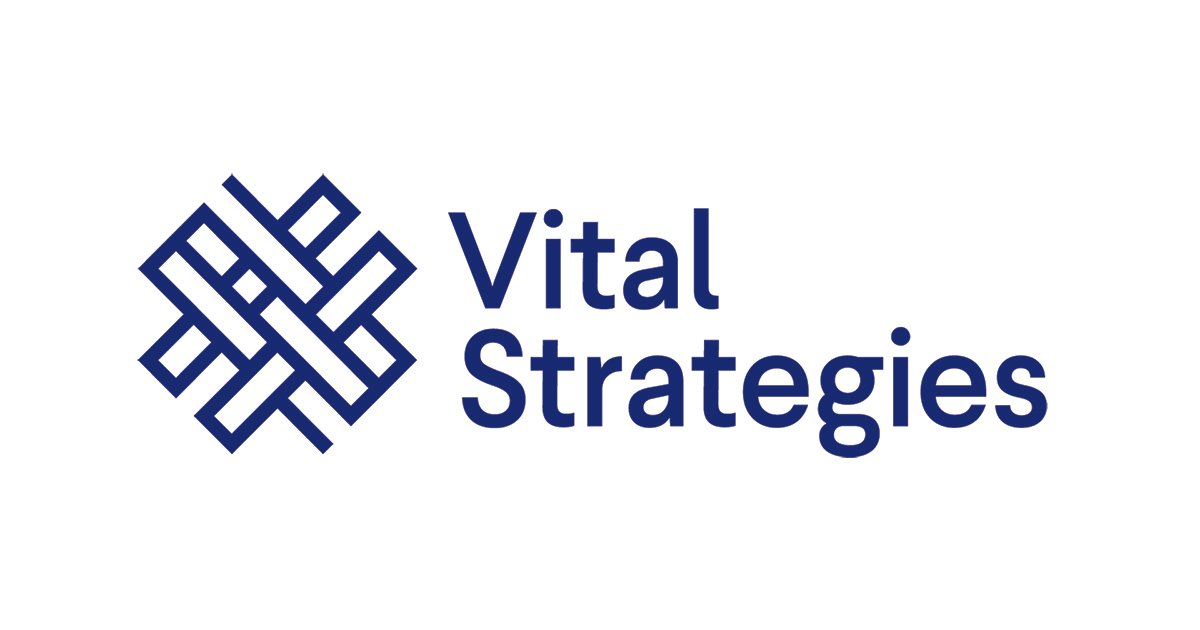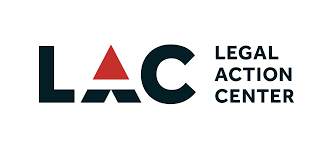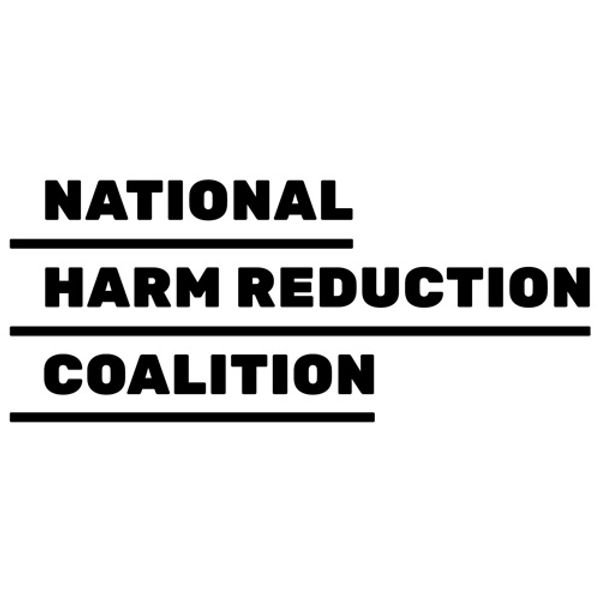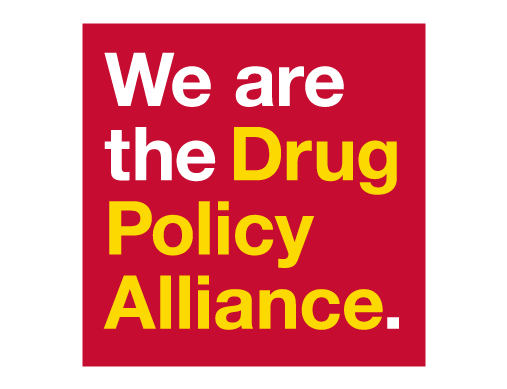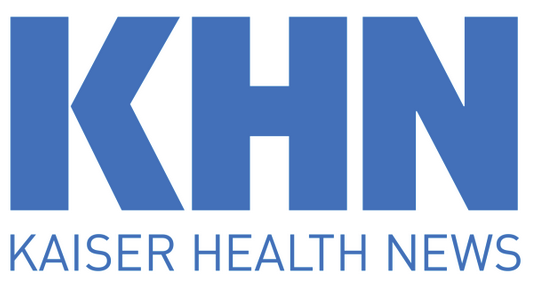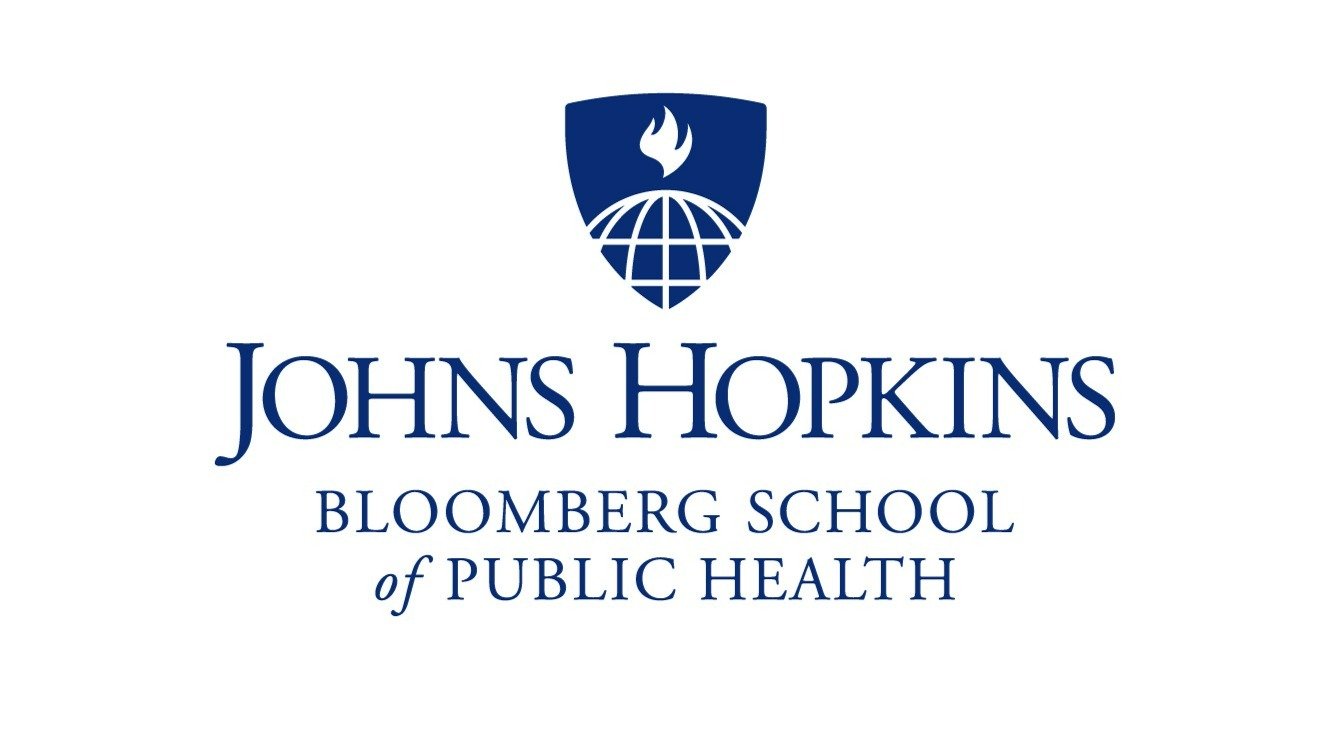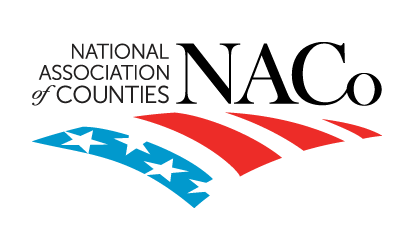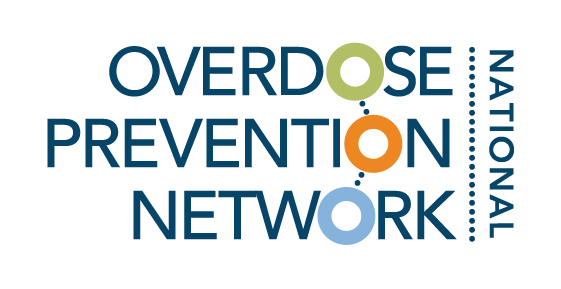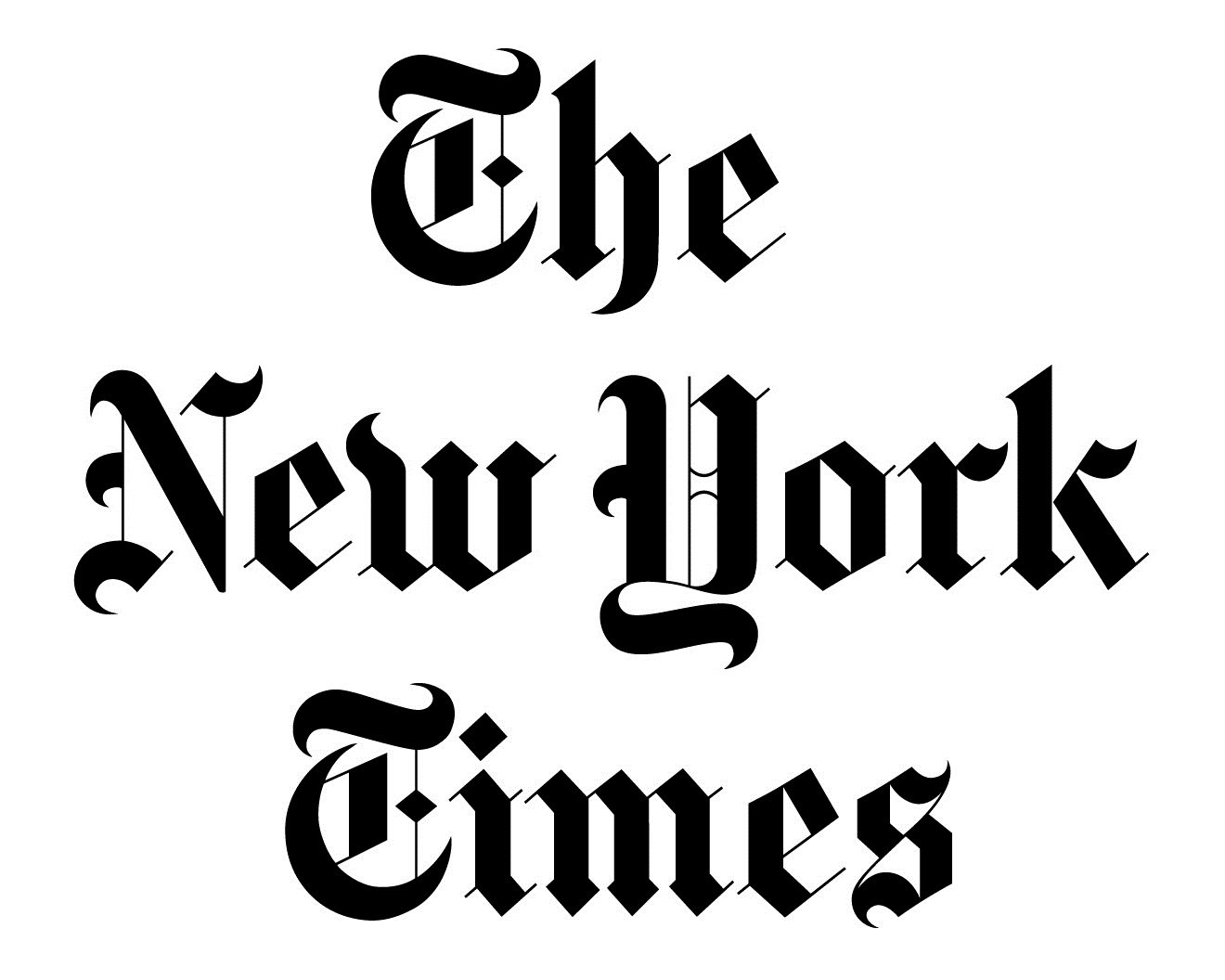Christine Minhee, J.D. is the nation’s top legal expert on opioid settlements.
Christine’s press interviews, video interviews, webinars & panels, and podcast interviews are below. Jump to →
OpioidSettlementTracker.com is a public interest project created by Christine Minhee, J.D., an attorney, consultant, and advocate for government accountability.
Christine tracks four categories of opioid settlement-related information — settlements reached by U.S. state and local governments, spending and decision-making processes, expenditure reporting, and grantmaking to communities — to independently advise NGOs and federal, state, and local government entities. She independently maintains this website and each of its datasets pro bono.
Christine is a UCSF-Johns Hopkins Bloomberg Opioid Industry Documents Archive National Advisory Committee member and the co-author of OpioidSettlementGuides.com, the definitive encyclopedia of U.S. states’ opioid settlement spending processes (Vital Strategies, 2024). She has consulted for each of the major sub-agencies of HHS (CDC, SAMHSA, HRSA) and has been featured by every major news outlet for her work, including The New York Times, Fast Company, Freakonomics Radio, and Last Week Tonight With John Oliver.
She launched OpioidSettlementTracker.com in 2019 as a Visiting Scholar at the University of Washington School of Law, where she graduated as the Dean’s Medalist and co-authored “The Cure for America’s Opioid Crisis? End the War on Drugs” (Harvard Journal of Law & Public Policy). Christine holds a B.A. from Stanford University and is a graduate of the Columbia Publishing Course. She is licensed to practice in Washington State.
For media requests, to book Christine for a speaking engagement, or to otherwise contact Christine, email her team or DM her on Instagram / LinkedIn.
christine@opioidsettlementtracker.com
As featured by:
With presentations, podcasts, and projects for:
A NOTE ABOUT USAGE
The information presented by OpioidSettlementTracker.com exists in the public domain, but the compilations themselves belong to me. I create my datasets for public, beneficial uses, so each of them sit under a Creative Commons Attribution-NonCommercial-ShareAlike 4.0 International License, which allows you to “remix, adapt, and build upon [the above] non-commercially” provided that two things occur: (1) I am credited in the process (“Christine Minhee, J.D., OpioidSettlementTracker.com”), and (2) you license whatever you produce using my help under identical, non-commercial terms. Happy to answer questions over email. All rights reserved.
ON THIS PAGE
OPIOID SETTLEMENT TRACKER IN THE NEWS
Select Press Interviews
“Opioid Settlement Money Is Being Spent on Police Cars and Overtime” (The New York Times) (August 2023)
“With Big Tobacco’s cautionary tale shadowing these debates, the issue of accountability looms. Who ensures that grantees spend their money appropriately? What sanctions will befall those who color outside the lines of their grants?
So far, the answers remain to be seen. Christine Minhee, a lawyer who runs the Opioid Settlement Tracker, which analyzes state approaches to spending the funds, noted that on that question, the voluminous legal agreements could be opaque.
‘But between the lines, the settlement agreements themselves imply that the political process, rather than the courts, will bear the actual enforcement burden,” she said. “This means that the task of enforcing the spirit of the agreement — making sure that settlements are spent in ways that maximize lives saved — is left to the rest of us.’”
“States are flush with opioid settlement money. We don’t know much about how they’ll spend it” (Fast Company) (December 2022)
Fast Company spoke to Christine Minhee, founder of OpioidSettlementTracker.com, to understand how the funds are being spent.
FC: What do you think we can do to make sure the funds are spent most effectively?
CM: Accountability. Sunlight is the best disinfectant. The fact that I went to law school informs my answer. You can argue that our opioid crisis is a public health scrouge created by big pharma or a preventable crisis that could have been mitigated had government done a better job (or both!).
If states and localities are forced to publish their specific expenditures, they’ll stand up straighter as they spend it since they’ll be subject to public scrutiny and save more lives.
…
FC: What do you think are the most effective ways of spending the opioid money?
CM: I’m a student of state governments and as such my authority isn’t really situated in particular interventions. However, harm reduction is a great solution to offset political liabilities in the future. It’s the most effective way to comply and make sure money is spent on evidence-based solutions and that the funds reach communities who need it most.
I do have a full appreciation that harm reduction can chafe depending on the political context of the state you’re in. For example, I’m in Seattle. Harm reduction seems like an obvious choice here. Not so much in Texas. But if you think about it practically, harm reduction is the best way to maximized lives saved as opposed to abstinence education.
See also Christine’s video interviews, webinars & panels, and podcasts. | back to top
Video Interviews
“Opioid Settlements: Last Week Tonight with John Oliver” (HBO) (May 2024) (available on YouTube and HBO Max)
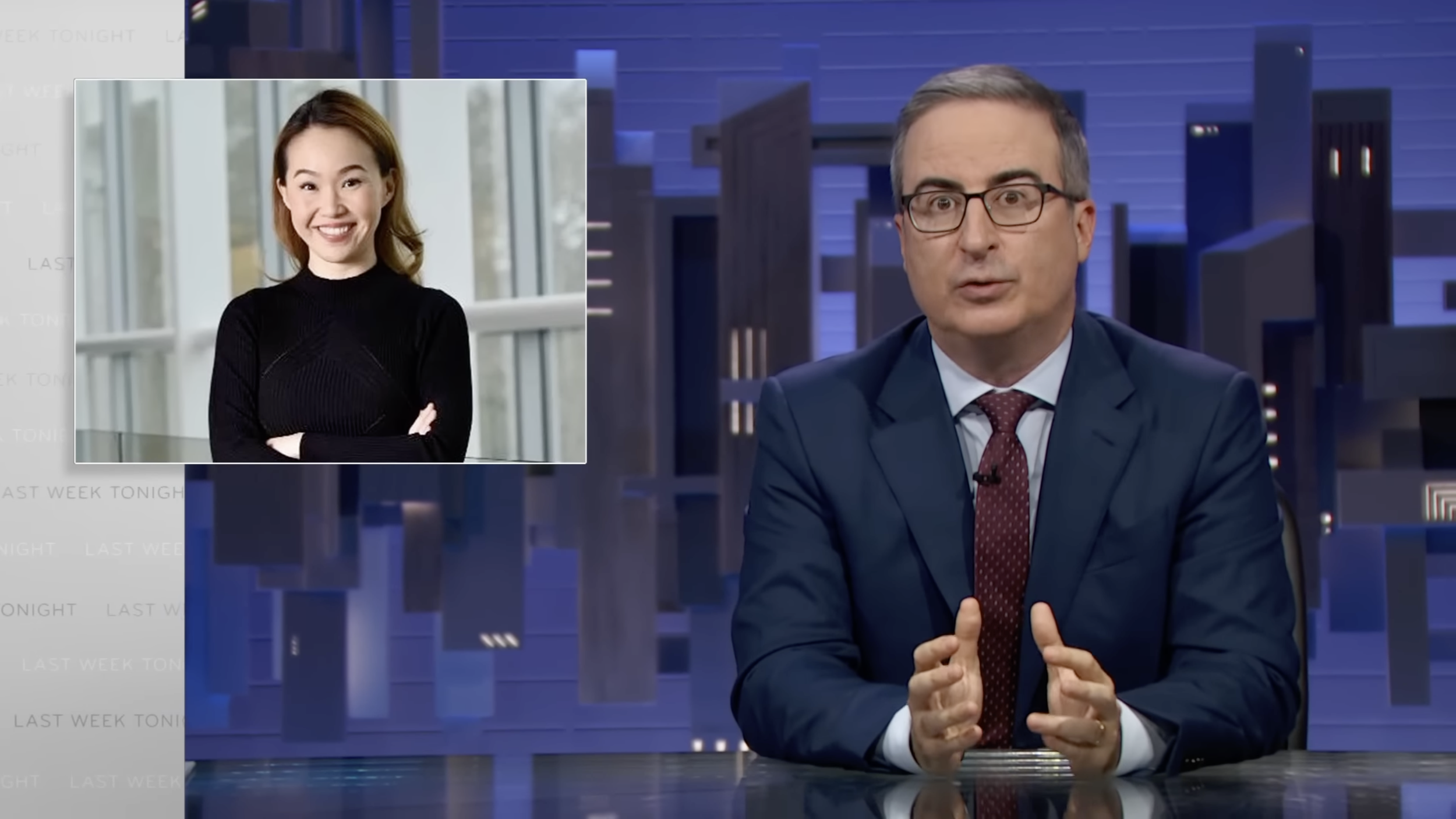

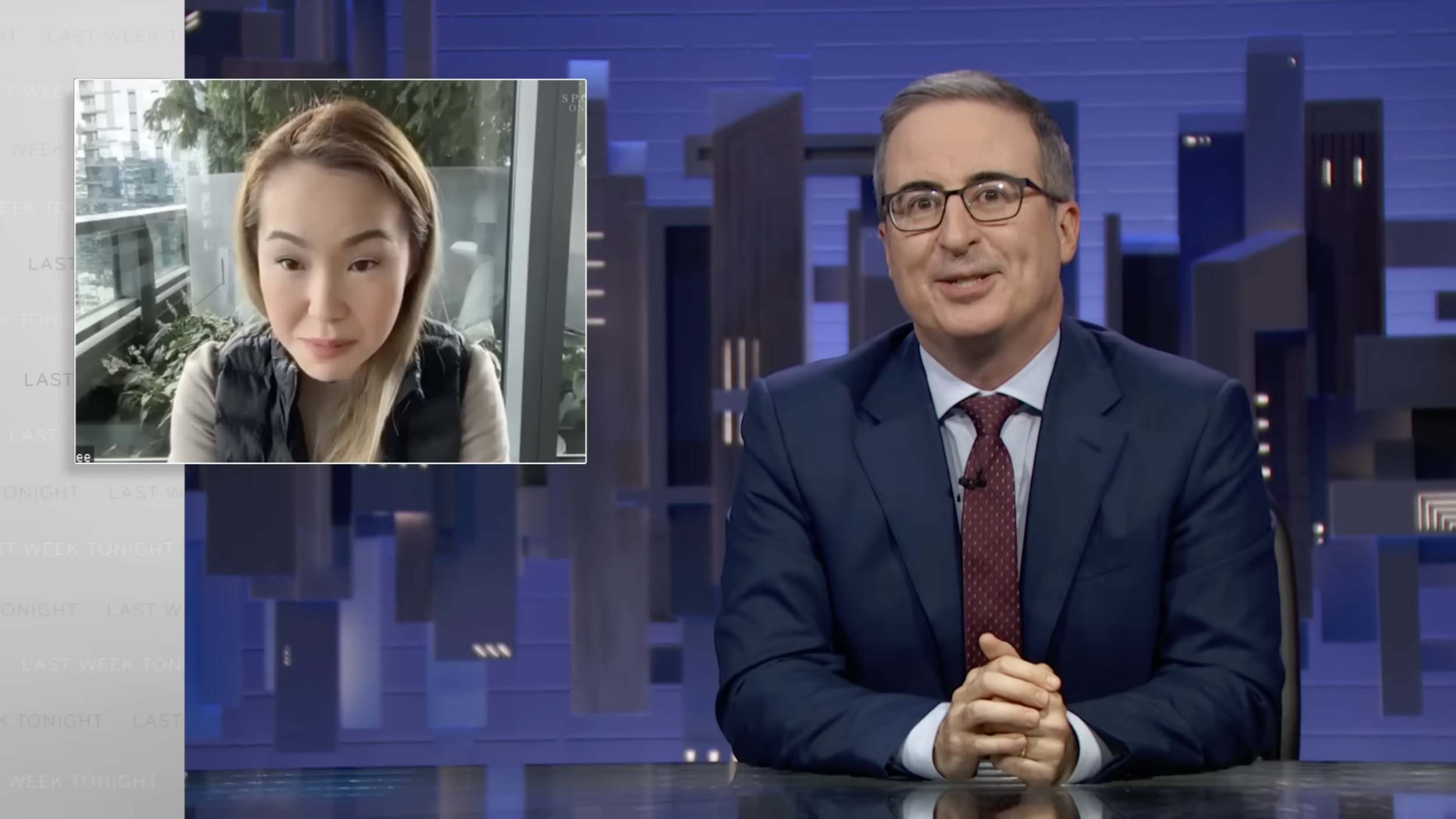

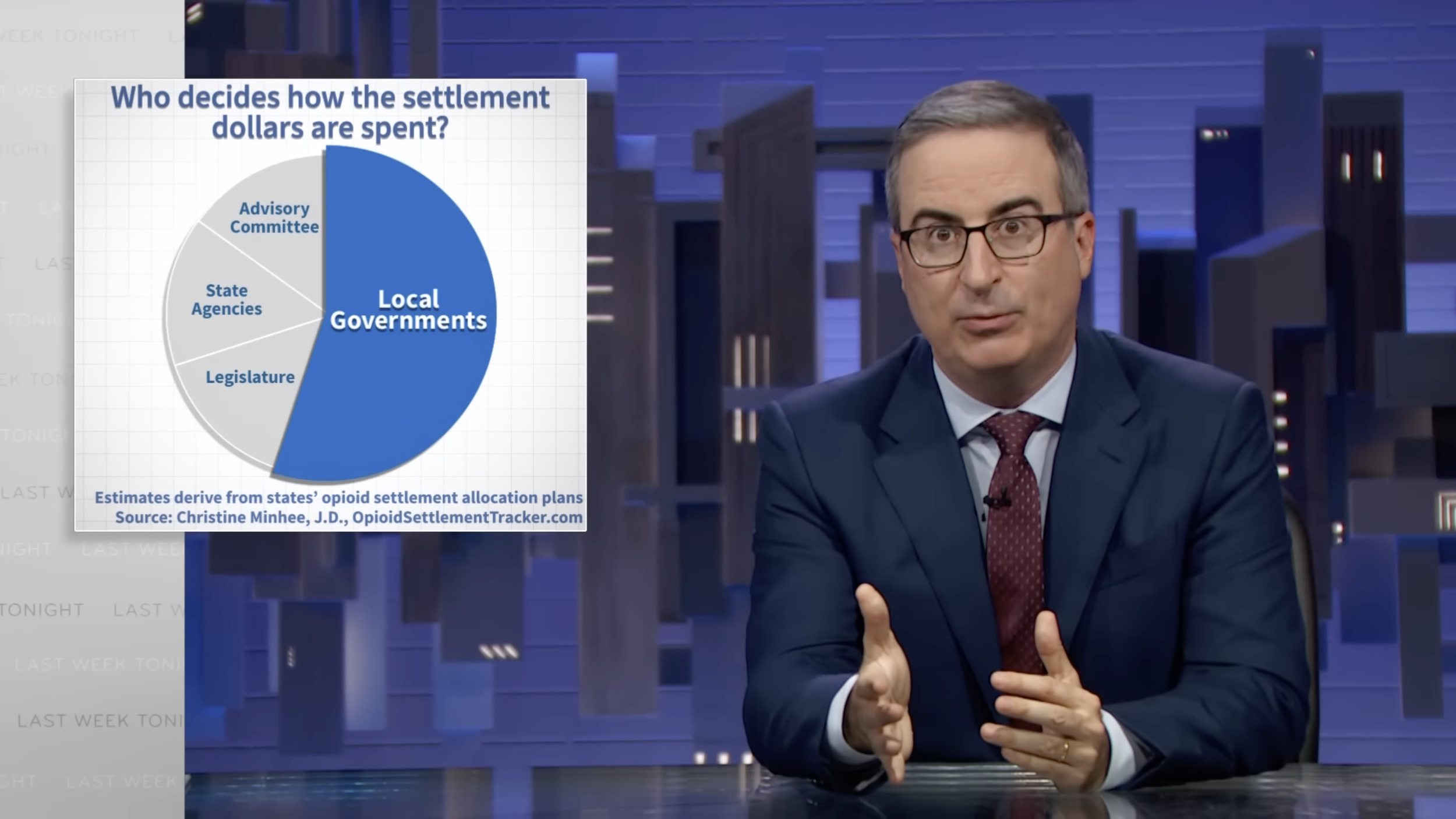
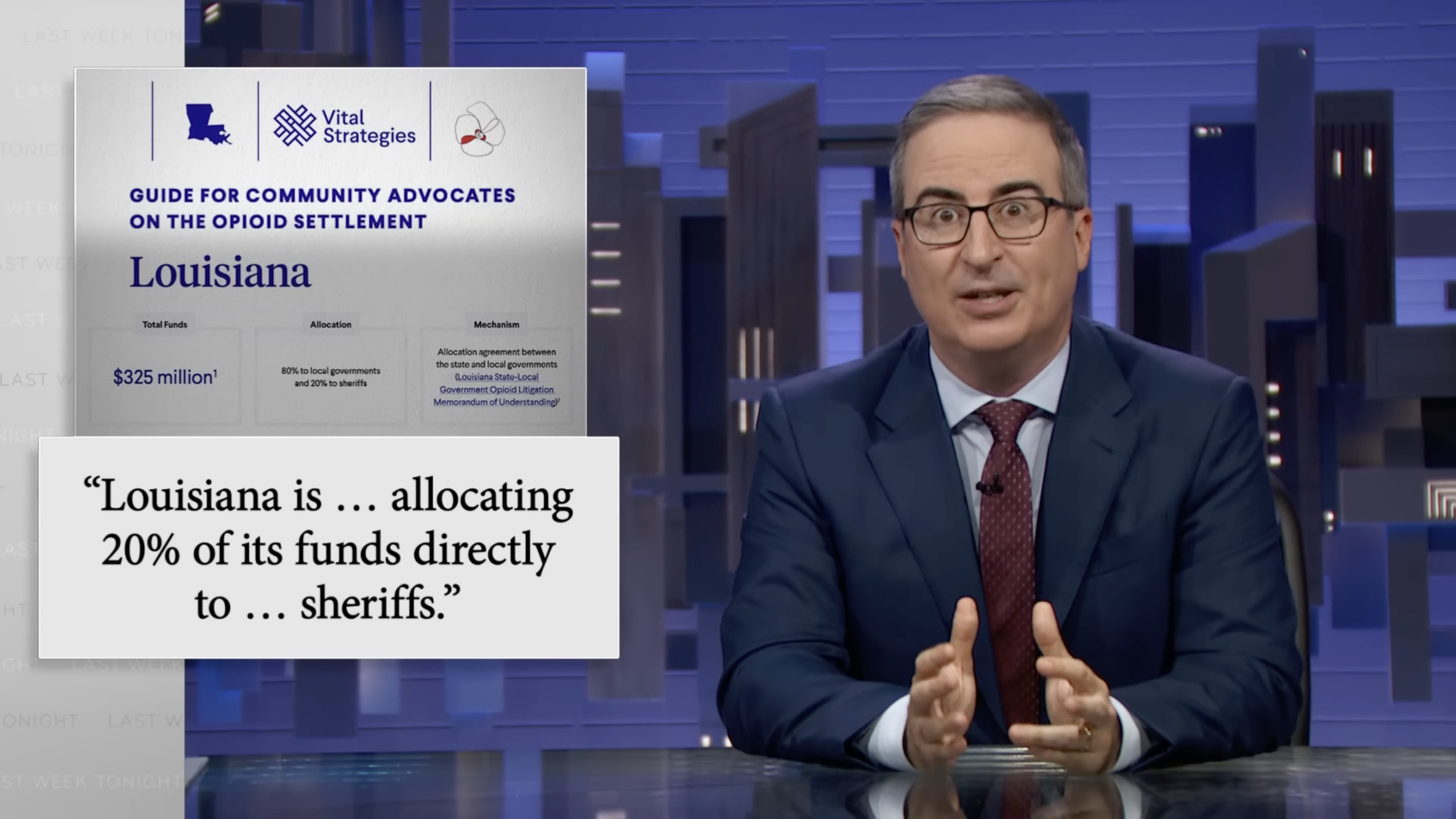
“Victims of the Opioid Crisis Are Mostly 'Left Out' of $50+ Billion Settlement” (Vox NowThis News) (January 2023)
“Where will opioid settlement money go?” (Reuters) (September 2021)
“Sackler family ordered to pay billions to settle opioid crisis lawsuit” (ABC Australia) (January 2025)
Other video interviews:
“Grassroots groups nationwide fight for opioid settlement money” (Spotlight on America) (August 2024)
“Survivors worry about use of opioid settlement money” (Scripps News) (May 2024)
“Public transparency urged with $100 million opioid settlement in Nebraska” (KETV) (October 2023)
“Lack of transparency concerns over billions in opioid settlement money distributions” (Spotlight on America, ABC, NBC, etc.) (October 2023)
See also Christine’s press interviews, webinars & panels, and podcasts. | back to top
Webinars & Panels
“Understanding and Accessing Opioid Settlement Funds: What it Means for Defenders and Communities,” National Association of Criminal Defense Lawyers (December 2024)
“Accessing Opioid Settlement Funding for Harm Reduction Programs,” National Harm Reduction Coalition (July 2022)
“Follow the Money: How to Track Opioid Settlement Dollars In Your State,” Reporting on Addiction (August 2023)
Other webinars and panels:
Opioid Settlement Dollars: A Breakdown of the Process and What it Means for Your Work in Overdose Prevention, National Overdose Prevention Network (September 2022)
Will States and Counties Spend Their National Opioid Settlements Effectively?, University of Pennsylvania Leonard Davis Institute of Health Economics (February 2023)
Ohio’s Opioid Settlement: Proceeds and Plans for Impact, Ohio State University Moritz College of Law Drug Enforcement and Policy Center (December 2021)
Ohio Opioid Settlements: How To Spend $1 Billion Wisely, Harm Reduction Ohio (October 2021)
See also Christine’s press interviews, video interviews, and podcasts. | back to top
Podcasts
“Can $55 Billion End the Opioid Epidemic?” (Freakonomics Radio) (May 2024)
“There’s also a way to track the $55 billion in settlement money — or at least try to track it. That is thanks to this person.
MINHEE: My name is Christine Minhee. I’m the founder of opioidsettlementtracker.com. … I started the project after I got obsessed with the Big Tobacco litigation as a law student, quickly realized that we were hurtling into the same dismal landscape of poor spending with opioid settlements, without any guardrails.”
“Following the Opioid Settlement Money: Interview with Christine Minhee” (Bankruptcy for Billionaires) (December 2023)
“We are pleased to introduce you to Christine Minhee: she makes the world better. Christine Minhee was a law student when she took it upon herself to track opioid litigation settlements and the allocation of this "abatement" fund money. Now, not only do we have her user-friendly website (opioidsettlementtracker.com), but her work has spurred states to become more transparent about their spending.”
“Opioid Settlement Funds: ‘Are we on the Right Track?’” (The Addiction Files: An Addiction Medicine Podcast) (November 2024)
“Christine Minhee, JD, founder of OpioidSettlementTracker.com, joins us for an insightful discussion on the distribution of opioid settlement funds. In this episode, Christine delves into the complexities of how these funds are allocated at the state and local levels, providing a clear explanation of key concepts such as "Exhibit E" and the issue of supplantation—where settlement funds may be used to replace, rather than supplement, existing state funding. This conversation provides valuable insights for policymakers, community leaders, and advocates seeking to ensure that settlement funds are used effectively to combat the opioid crisis…”
“Episode 40: Christine Minhee on the Promises and Perils of Opioid Litigation” (Drugs and Stuff: A Podcast from the Drug Policy Alliance) (October 2024)
“As overdose deaths continue to increase, where will this money actually go? We sat down with Christine Minhee, an expert on opioid litigation and creator of the opioid settlement tracker: a project that asks, ‘Will opioid settlements actually be spent in ways that bolster the public health response to drug addiction?’ She spoke with Mary Sylla, a senior staff attorney with DPA, about what opioid litigation is, why it’s so complex, how it ties into our current moment, and what her pie in the sky dream for a settlement would look like.”
“620 - How The Opioid Settlement Tracker Is Monitoring $50 Billion” (Johns Hopkins Bloomberg School of Public Health: Public Health On Call) (June 2023)
'“Who is making decisions about how to spend more than $50 billion in proceeds from opioid-related litigation? Christine Minhee, lawyer and founder of opioidsettlementtracker.com, talks with Dr. Josh Sharfstein about tracking the complex cashflow state by state, and her hopes that the website will challenge more jurisdictions to share just how they’re spending dollars intended for tackling the opioid epidemic.”
“Bonus Episode: Crisis to Empowerment - Opioid Settlement Funds” (VitalTalks: Future of Public Health) (July 2023)
“Christine Minhee, Founder, OpioidSettlementTracker.com and Kate Boulton, Senior Legal Technical Advisor at Vital Strategies, highlight the importance of transparency and public involvement in decision-making processes on how these resources will be used, while discussing how health advocates can access the funds for harm reduction initiatives. Discover how these resources empower individuals and communities to influence the impact of settlement funds on global health.”
“#68: Tracking the Opioid Settlements (Christine Minhee)” (The Dr. Junkie Show) (August 2021)
“New York recently announced a $1.8 billion settlement with major drug distributors, and a larger $26 billion "global settlement" scheduled to follow shortly thereafter. But that money won't be devoted to methadone treatment or paying for rehab. It will probably be devoted to making the war on drugs even larger and more violent. This week I sit down with Christine Minhee, author and editor of The Opioid Settlement Tracker, to talk about why this is happening, and how we can prevent the worst of the damage.”
See also Christine’s press interviews, video interviews, and webinars & panels. | back to top
ALL MENTIONS BY DATE
2025
February — “Health experts alarmed at new overdose drug marketed to WMass police departments” (The Shoestring)
January — “VIDEO: Sackler family ordered to pay billions to settle opioid crisis lawsuit” (ABC News Australia)
2024
December — “How should the opioid settlements be spent? Those hit hardest often don’t have a say” (Associated Press), “Are states keeping their promises on opioid settlement transparency?” (The Washington Post), “People with Substance Use Disorder Don’t Have Input in How Opioid Settlement Funds are Spent” (Partnership to End Addiction)
November — “12 States Promised To Open the Books on Their Opioid Settlement Funds. We Checked Up on Them.” (KFF Health News / NPR), “Ky law says cities, counties must detail opioid settlement spending. Most haven’t.” (Louisville Public Media)
September — “Cash from opioid settlements is flowing into Louisiana. Where will the money go?” (NOLA)
August — “Grassroots groups nationwide fight for opioid settlement money” (Spotlight on America)
July — “How are Local Governments Investing Opioid Funds? The Supplantation Debate Explained” (National League of Cities)
June — “Lack of transparency still clouds billions in opioid settlement money going to states” (Spotlight on America)
May — “Local governments struggle to distribute their share of billions from opioid settlements” (Associated Press), “John Oliver Shines Spotlight on Opioid Settlement Funds With 25-Minute On-Air Segment” (Vital Strategies), “Survivors worry about use of opioid settlement money” (Scripps News)
April — “Opioid settlement cash being used for existing programs and salaries, sparking complaints” (USA Today), “Why opioid settlement money is paying county employees’ salaries” (The Washington Post)
March — webinar: “The 2024 Snapshot of States’ and Localities’ Opioid Settlement Spend” (CHESS Health)
February — “As opioid deaths mount, Michigan governments sit on millions for intervention” (Bridge Michigan)
January — “With opioid settlement dollars flooding Connecticut, what will equity and fairness look like?” (Connecticut Public Radio), “New report provides detailed insight into how CT cities are spending opioid settlement money” (Connecticut Public Radio), “Proposed bill would ensure $50 billion in opioid settlement funds goes toward addressing addiction” (Spectrum News), “Where will Georgia's $640M opioid settlement money go?” (WABE)
2023
December — “The Year in Opioid Settlements: 5 Things You Need to Know” (KFF), “How we’re tracking the opioid settlement cash” (The Maine Monitor), “Nevada received more than $1 billion in opioid settlements. There’s little information about how it’s being spent.” (This is Reno), “Whitmer signs repeal of nation’s only immunity law that shielded drugmakers from legal liability” (Michigan Advance), podcast: “Following the Opioid Settlement Money: Interview with Christine Minhee” (Bankruptcy for Billionaires)
November — “States are getting $50 billion in opioid cash. And it’s an issue in governor’s races” (KFF / NPR), “As opioid settlement money comes to CT, pain of personal loss confronts bureaucratic delays” (Connecticut Public Radio), authored piece: “How Are Opioid Settlement Funds Being Spent So Far?” (Health Affairs Forefront)
October — “Legal opinion on opioid funds limits Idaho more than other states, health officials say” (Idaho Capital Sun), “Bill ending Michigan’s drug immunity law clears Senate committee” (Michigan Advance), “Lack of transparency concerns over billions in opioid settlement money distributions” (Spotlight on America, as syndicated on ABC, NBC, etc.), “Public transparency urged with $100 million opioid settlement in Nebraska” (KETV)
September — “Opioid Settlement Funds: Will ‘Once-in-a-Generation’ Chance Be Wasted?” (Filter), legislative mention: “Sen. Markey, Rep. Trone, Colleagues Demand Biden Admin. Track $50 Billion in Opioid Settlement Money From Big Pharma, Ensure Used to Address Opioid Epidemic” (Senator Ed Markey)
August — “Opioid Settlement Money Is Being Spent on Police Cars and Overtime” (The New York Times), “Money from opioid settlements is flowing to Massachusetts cities and towns” (Boston Globe), “‘Problematic’ use of opioid settlement money opposed by coalition of public health organizations” (Salon), resource: A Quick “How-To” Guide for Understanding Opioid Settlements State-to-State (National Association of County and City Health Officials)
July — “Louisiana will get $325M from a major opioid settlement. Advocates want to know how it will be spent” (WWNO New Orleans Public Radio), “Millions of dollars to combat opioid abuse are coming to Idaho” (Idaho Capital Sun), panel: “Leveraging opioid settlement funds for harm reduction and public health” (National Association of County and City Health Officials (NACCHO))
June — “W.Va. Scores High In Opioid Settlement Money Transparency” (West Virginia Public Broadcasting), “Opioid Settlement Payouts to Localities Made Public for First Time” (KFF Health News), “Delaware County was the first in Pa. to sue drug companies for opioid crisis. Now it’s time to spend settlement money” (WHYY), “Where will the opioids settlement money go?” (Marketplace), “Maine will receive at least $235 million in settlements from companies accused of fueling the opioid crisis” (The Maine Monitor), “RI communities get millions in opioid settlement funds. But who knows how they're spending it?” (The Public’s Radio)
May — “States are getting billions from opioid settlements. Now what?” (The Washington Post), “Walgreens to pay San Francisco $229 million over opioid crisis” (CBS News), “LOCALIZE IT: State and local governments figuring out how to use opioid settlement money” (Associated Press), “States aren’t being transparent about how they’re spending opioid settlement funds” (NPR 1A), “The Public Isn't So Confident in Effectiveness of Opioid Settlements” (Morning Consult)
April — “Many States Not Transparent About Where Opioid Settlement Funding is Going” (Partnership to End Addiction)
March — “Opioid Settlement Tracker Seeks Government Accountability,” (University of Washington School of Law), “Opioid crisis settlements have totaled over $50 billion. But how is that money being used?” (CBS News), “As states start to get opioid settlement cash, few are sharing how they spend it” (KFF / NPR), “Karma catches up with big pharma: Drug companies made to pay over $50bn to settle lawsuits over fueling opioid epidemic” (Daily Mail; my first tabloid mention 😅)
February — “Will States and Counties Spend Their National Opioid Settlements Effectively?” (Penn LDI)
January — “Victims of the Opioid Crisis Are Mostly 'Left Out' of $50+ Billion Settlement” (Vox NowThis News), “LOCALIZE IT: Naloxone access improving, but short of hopes” (The Independent)
2022
December — “States are flush with opioid settlement money. We don’t know much about how they’ll spend it” (Fast Company), “Leveraging Settlement Funding to Change Systems” (National Overdose Prevention Leadership Summit)
November — “States differ on how best to spend $26B from settlement in opioid cases” (KFF / NPR), “Local Officials Grapple With How to Spend Billions in Opioid Settlement Dollars” (Tradeoffs)
October — “Alabama will get nearly $300 million in opioid settlements. How will we spend it?” (AL.com)
September — “Advocates seek more say in how opioid settlements are spent” (Associated Press), Opioid Settlement Dollars: A Breakdown of the Process and What it Means for Your Work in Overdose Prevention (National Overdose Prevention Network)
August — “Drug overdose deaths still on the rise, loved ones remembered during International Overdose Day in Milwaukee” (TMJ4)
July — Accessing Opioid Settlement Funding for Harm Reduction Programs (National Harm Reduction Coalition, embedded above)
June — “Want to know what’s happening in your state? This site has all the details” (Johns Hopkins Bloomberg School of Public Health)
May — “$750M to start flowing in NC to fight opioid addiction” (WRAL), “In North Carolina, Faith and Evidence Face Off” (Treatment Magazine)
April — Luncheon: Leveraging Opioid Settlements for Health (National Association of Counties), “Tension builds around best ways to spend NC’s opioid settlement money” (North Carolina Health News), “AIG, Chubb off hook for McKesson opioid defense costs” (Business Insurance)
March — “$10B Purdue Opioid Settlement: What Coloradans Should Know,” “$26B Opioid Settlement Will Benefit Connecticut Municipalities,” “Purdue Opioid Settlement: What Ohioans Should Know” (Patch)
February — “Major drug distributors and J&J finalize opioid settlement, launching nationwide funding” (The Washington Post), “Road to US opioid settlements has been long and complicated” (Agence France-Presse)
January — Opioid Settlements and Litigation Across the States (National Association of Counties), “States Using Settlement Fund Legislation to Enhance Response to the Opioid Crisis” (Association of State and Territorial Health Officials)
2021
December — Ohio’s Opioid Settlement: Proceeds and Plans for Impact (OSU Law’s Drug Enforcement and Policy Center)
November — “Washington AG takes opioid distributors to court. Lawyer who tracks settlements weighs the risks” (NPR / KUOW), “Addressing the Opioid Crisis” (The Council of State Governments)
October — Ohio Opioid Settlements: How To Spend $1 Billion Wisely (Harm Reduction Ohio)
September — “Where will opioid settlement money go?” (Reuters)
August — “#68: Tracking the Opioid Settlements (Christine Minhee)” (The Dr. Junkie Show)
July — “U.S. state officials urge support for landmark $26 bln opioid settlement” (Reuters), “Johnson & Johnson to pay $5bn in landmark $26bn US opioid settlement” (The Guardian)
June — “The Opioid Crisis Hit Schools Hard. Now They Want Drug Companies to Pay Up” (Education Week)
FREQUENTLY ASKED PROJECT-RELATED QUESTIONS
Why are you tracking opioid settlements?
“I think everyone understands why cities and counties have filed their own cases. ... It’s the legacy of the tobacco settlement, when most of the $200 billion that was paid by tobacco manufacturers did not go toward reducing smoking and treating lung cancer[, and] was used by state legislators for other state purposes.”
It’s one thing for attorneys general to claim that states will spend their opioid settlements better than they did their big tobacco MSA winnings. It’s quite another to show exactly how they did or did not. And the importance of spending data related to public health crises — especially those exacerbated by government mismanagement — cannot be understated!
Reports detailing how states have apportioned their big tobacco MSA proceeds, e.g., Broken Promises to Our Children: A State-by-State Look at the 1998 Tobacco Settlement 20 Years Later, and other datasets like it, have been indispensable to local government plaintiffs as they pursue lawsuits alongside their state attorneys general. From those reports, we know the following:
“In the current budget year, Fiscal Year 2020, the states will collect $27.2 billion from the settlement and taxes. But they will spend just 2.7% of it – $739.7 million – on programs to prevent kids from smoking and help smokers quit.
Meanwhile, tobacco companies spend $9.1 billion a year – $1 million every hour – to market their deadly and addictive products. This means tobacco companies spend over $12 to market their products for every $1 the states spend to reduce tobacco use.”
If states misspend the settlements they win from pharmaceutical opioid manufacturers, distributors, and retailers the way they misspent their winnings from big tobacco, the local services and community treatment providers combatting Opioid Use Disorder (OUD) on the ground are likely to receive very, very little of it. Cities, counties, and tribal governments know this, so they sue to ensure their slice of the abatement funding pie.
Do you have a secret agenda?
I think that the war on drugs has failed, and I doubt that federal regulatory agencies are properly incentivized to prioritize the public’s health over the needs of powerful corporations as well as they can be. But otherwise, not really.
Where are you based?
Seattle, Washington.
So you’re a liberal.
Is this going somewhere?
Who pays you?
Since early 2021, no entity has paid me to run this site. I used a fellowship grant to launch this project in 2019. When the fellowship ended in 2021, I decided to keep the site going pro bono. I now pay rent by working as an opioid settlement expert and legal consultant to a diverse portfolio of non-profit organizations, associations of governments, and other “non-pharma” entities.
I knew that the salus populi suprema lex in your footer was an Illuminati thing.
It actually means “the welfare of the people is the supreme law.”
How do I reach you?
Email is the fastest way to get in touch: Christine@OpioidSettlementTracker.com. I’m also on LinkedIn.
